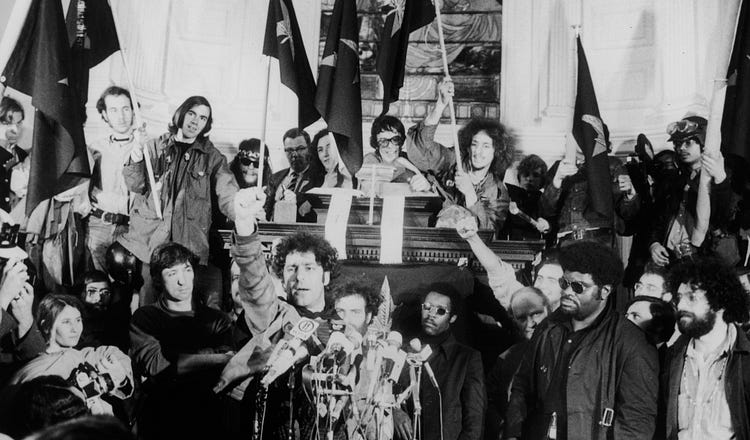Why Does Tucker Carlson Sound Like a Berkeley Leftist?

Abbie Hoffman at a rally in New York in the late 1960s. (Hulton Archive via Getty Images)
The war in Ukraine has exposed an ideological vacuum at the heart of American right.
713
In the Before Times, prior to Twitter and #BLM and Critical Race Theory, the one wing of the political spectrum that was reliably “America, love it or leave it!” levels of patriotic was the right. The most traditional and curmudgeonly conservatives, grumps like William F. Buckley and George F. Will who harrumphed glumly about the world in National Review
Continue Reading The Free Press
To support our journalism, and unlock all of our investigative stories and provocative commentary about the world as it actually is, subscribe below.
$8.33/month
Billed as $100 yearly
$10/month
Billed as $10 monthly
Already have an account?
Sign In

